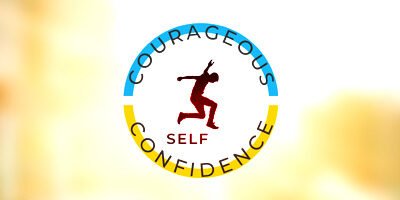 Most of us have fear below the surface. Fear at its core is self-limiting beliefs. Learn about the six basic fears as well as how to overcome fear itself.
Most of us have fear below the surface. Fear at its core is self-limiting beliefs. Learn about the six basic fears as well as how to overcome fear itself.
Before we get into this episode about how to identify the six fundamental fears, I need to expose something inside of you that may be lurking beneath the surface. Denial.
You may have asked somebody before, what do you fear most. And you probably heard that person respond, “Nothing.” You might have answered this way before. Maybe even right now…
Few people realized how beaten down by fear they really are. Typically it has become normal to you. Running beneath the surface.
Fear may be causing you to constantly put your dreams on the back burner and procrastinate on your convictions. It’s time to kick fear in the face!
In this episode
- The 6 basic fears and how to overcome them
- Two tools that will help overcome fears
- Why procrastination is merely a symptom of a fear of poverty
- How positive psychology can help you take control of your life
- How most fears lurks beneath the surface of each of us
References
Think and Grow Rich by Napoleon Hill (book)
Awaken the Giant Within by Anthony Robbins (book)
The Four Hour Work Week by Tim Ferriss (book)
Other Episodes Mentioned
Courageous Self-Confidence – Stories of Courage Series
How to Exercise Courage Through Recreation | Core Concepts | 045
Quote
“When is the best time to plant a tree? 20 years ago. When is the next best time? Today.” – Anonymous
The 6 Basic Fears
Napoleon Hill identified these 6 Basic Fears that are really the fears that all other fears boil down to. I like to call them the root fears.
1) Fear of poverty
Symptoms include: indifference, doubt, worry, over-caution, procrastination
2) Fear of criticism
Symptoms include: self-consciousness, lack of poise, lack of personality, inferiority complex, extravagance, lack of initiative, lack of ambition
3) Fear of ill health
Symptoms include: experimenting with diets/physical exercises/without professional guidance, hypochondria, exercise excuses, susceptibility to sickness, faking illness, frequent drug/alcohol use (even pain killers)
4) Fear of loss of love of someone
Symptoms include: jealousy, fault finding, gambling, monetary theft and overspending (to prove to yourself that others will still love you even if you are reckless)
5) Fear of old age
Symptoms include: slowing down, talking about being old, making excuses against exercise due to age, ignoring human qualities feigning that they are child qualities
6) Fear of death
Symptoms include: thinking about dying, lack of purpose, lack of drive in occupation
Tool #1: How to overcome fear – The action signal approach
Anthony Robins has a method for mastering emotions. He says that emotion are action signals. Since fear is an emotion, here is what you can do when you are actually feeling fear.
I’m going to use an example below each step to walk myself through the exercise of dealing with my own fear. Because I’m dealing with two types of fears (one that is on the surface and another that is at the root), I will label each action with “Surface Fear” and “Root Fear”.
1) Identify your fear
Ie. I notice that I am feeling fear when I think of playing a basketball game. This is probably because I am afraid of what others may say if I play poorly.
2) Acknowledge your fear
Ie. I am afraid of playing basketball and at it’s core, what others think of me.
3) Accept that fear is just a signal to get prepared for something.
Ie. This is just a sign that I should get ready to tackle my fear by getting prepared.
(Surface Fear) One approach is to just dive into basketball and do it.
(Root Fear) Another is to journal and dig into my fear of criticism complex.
4) Get confident about what YOU can do.
Ie. (Surface Fear) I can work one-on-one with a coach to learn drills, I can practice every day for 30 minutes, I can join a pick-up game of friendly people.
(Root Fear) Take inventory of all the things that I am good at and acknowledge my worth and value.
5) Get certain that you can and will overcome it.
Ie. (Surface Fear) “I will overcome my fear of stepping on a basketball court to play a game by doing it.”
(Root Fear) “I will overcome my fear of criticism.”
6) Get excited and take action.
Ie. (Surface Fear) Have conversation with friends who coach basketball and see if someone can teach me some basic drills.
(Root Fear) Change my approach to criticism by knowing that criticism is merely feedback.
Tool #2: How to overcome fear – The fear-setting approach
Tim Ferriss coined an exercise he calls Fear-setting. Take out a standard blank sheet of paper and turn it longways and make 3 columns.
Column #1: In the first column answer the following questions: “What is it that I fear? What is everything can can go wrong?”
Column #2: Answer the following question: “What can I do to prevent this from happening?”
Column #3: Answer the following question: “How can I recover from this if it does happen?
Challenge
If you got something out of this episode, share that specific takeaway with a friend or on social. I dare you. Be courageous.

#92 Emotional Intelligence in Relation to Self-Confidence with Robin Hills | Stories of Courage
When faced with a conversation that needs to happen, we can face it or avoid it. David Wood chooses to be courageous about conversations.
#91 Celebrate the Moments | Core Concepts
Our lives are made up by a series of moments. If we build a discipline that helps us to celebrate the moments we can live out joy.
#90 Addiction Follow-Up to Last Episode with David Wood
You’re in for a real treat today with our guest, David Wood. We are talking all about addiction.
Want to join the community?
For richer conversation, motivation, and inspiration about courage, you are invited to join the Facebook group. Come discuss topics about living with courage and confidence.




